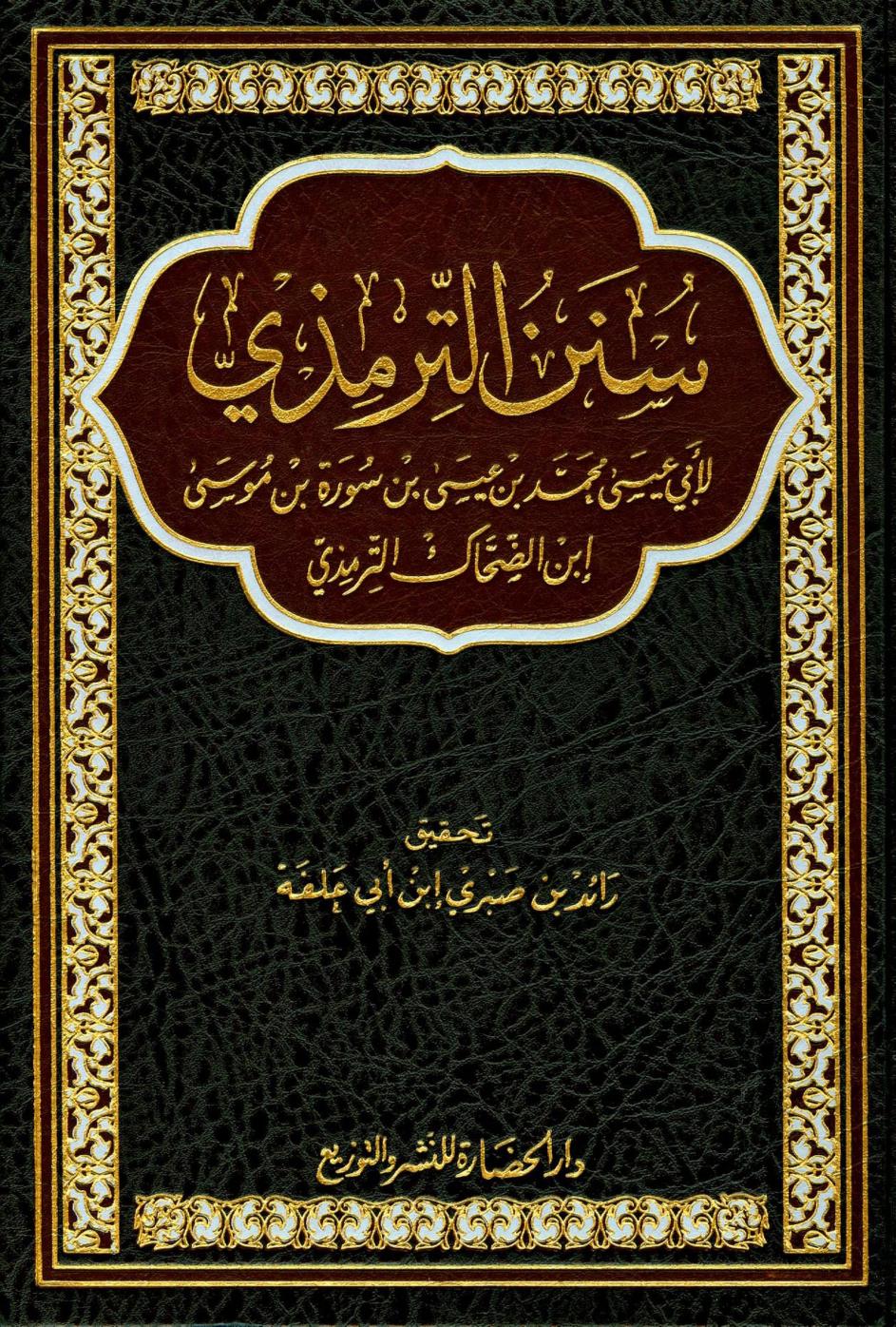


Smart Quran & Hadith Search
You can use this search to find anything in the Quran in Arabic, Urdu, or English.To search Hadith, use the toggle button below to switch modes.
Quran
Hadith

جَامِعُ التِّرْمِذِيِّ
✍️ الإمام أبو عيسى محمد بن عيسى الترمذي
📄 ابواب کی تعداد: 340
📘 احادیث کی کل تعداد: 34,373
جَامِعُ التِّرْمِذِيِّ هُوَ أَحَدُ الكُتُبِ السِّتَّةِ الرَّئِيسِيَّةِ فِي الحَدِيثِ عِندَ أَهْلِ السُّنَّةِ وَالجَمَاعَةِ، وَيُعْرَفُ مُجْتَمِعًا بِاسْمِ 'كُتُبِ السِّتَّةِ'. جَمَعَهُ الإِمَامُ أَبُو عِيسَى مُحَمَّدُ بْنُ عِيسَى التِّرْمِذِيُّ، وَهُوَ مِنْ عُلَمَاءِ الحَدِيثِ البَارِزِينَ فِي القَرْنِ التَّاسِعِ. يَتَمَتَّعُ هَذَا الكِتَابُ بِمَكَانَةٍ كَبِيرَةٍ نَظَرًا لِأُسْلُوبِهِ الفَرِيدِ وَنَهْجِهِ الشَّامِلِ فِي تَقْدِيمِ الأَحَادِيثِ مَعَ التَّعْلِيقِ العِلْمِيِّ.
عَلَى عَكْسِ بَعْضِ مَجْمُوعَاتِ الحَدِيثِ الأُخْرَى الَّتِي تُرَكِّزُ فَقَطْ عَلَى الصِّحَّةِ، جَامِعُ التِّرْمِذِيِّ يَجْمَعُ بَيْنَ الأَحَادِيثِ الفِقْهِيَّةِ وَالعَقَائِدِيَّةِ، وَيَشْمَلُ أَيْضًا تَحْلِيلَ المُؤَلِّفِ لِقُوَّةِ أَوْ ضَعْفِ الرِّوَايَاتِ. كَثِيرًا مَا يُوَضِّحُ الإِمَامُ التِّرْمِذِيُّ عَنِ الرُّوَاةِ، وَالاخْتِلَافَاتِ فِي الأَلْفَاظِ، وَآرَاءِ العُلَمَاءِ بِشَأْنِ صِحَّةِ الحَدِيثِ وَتَطْبِيقِهِ. هَذَا الأُسْلُوبُ التَّحْلِيلِيُّ يَجْعَلُ الكِتَابَ ذَا قِيمَةٍ لَيْسَ فَقَطْ كَمَجْمُوعَةِ أَحَادِيثَ، وَلَكِنْ أَيْضًا كَمَصْدَرٍ لِلنَّقْدِ الحَدِيثِيِّ وَالفِقْهِ الإِسْلَامِيِّ.
الكِتَابُ مُنَظَّمٌ حَسَبَ المَوْضُوعَاتِ، وَيُغَطِّي مَجَالَاتِ العَقِيدَةِ، وَالعِبَادَةِ، وَالآدَابِ، وَالقَانُونِ. يَتَضَمَّنُ أَحَادِيثَ صَحِيحَةً (صَحِيح)، وَأُخْرَى جَيِّدَةً (حَسَن)، وَأَحْيَانًا ضَعِيفَةً (ضَعِيف)، وَالَّتِي يُتَمُّ تَحْدِيدُهَا بِوُضُوحٍ وَمُنَاقَشَتُهَا مِنْ قِبَلِ المُؤَلِّفِ. هَذِهِ الشَّفَافِيَّةُ فِي التَّدْرِيجِ وَالتَّعْلِيقِ تُضِيفُ إِلَى أَهَمِّيَّتِهِ العِلْمِيَّةِ.
يُتَمُّ دِرَاسَةُ جَامِعِ التِّرْمِذِيِّ عَلَى نِطَاقٍ وَاسِعٍ فِي المَدَارِسِ الإِسْلَامِيَّةِ، وَيُقَدَّرُ لِمِيزَتِهِ فِي التَّوَازُنِ بَيْنَ الرِّوَايَةِ وَالمُنَاقَشَةِ العِلْمِيَّةِ. يُسَاهِمُ بِشَكْلٍ كَبِيرٍ فِي فَهْمِ التَّقَالِيدِ الإِسْلَامِيَّةِ، وَالفِقْهِ، وَمَنْهَجِيَّةِ تَدْوِينِ الحَدِيثِ.
Hadith #226